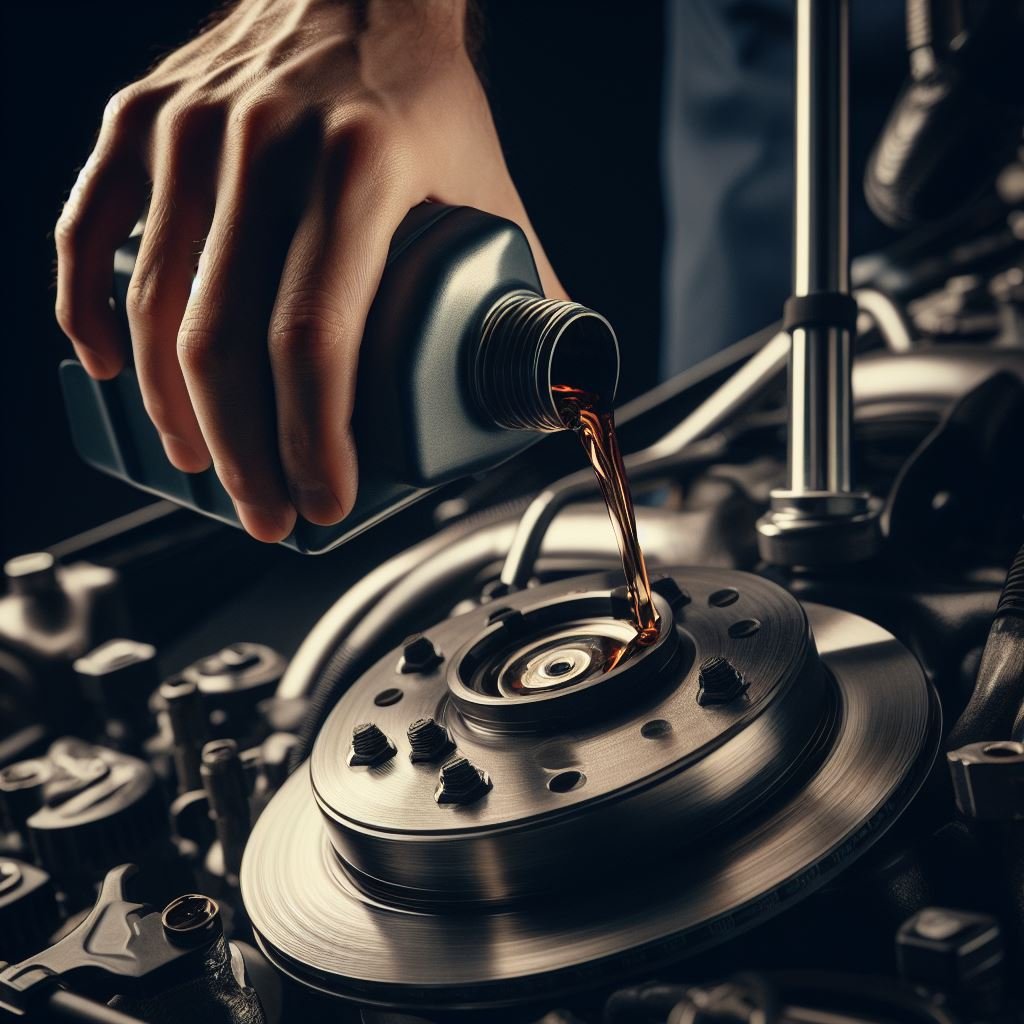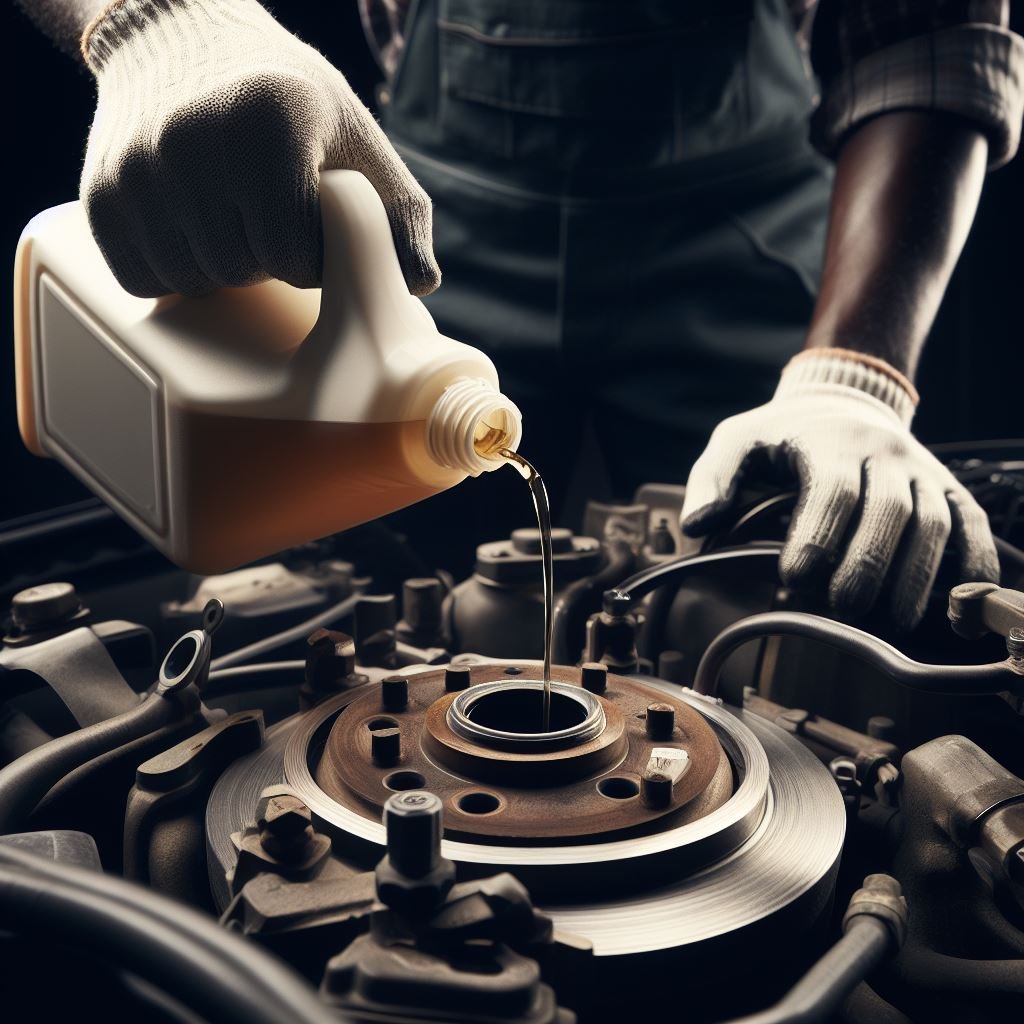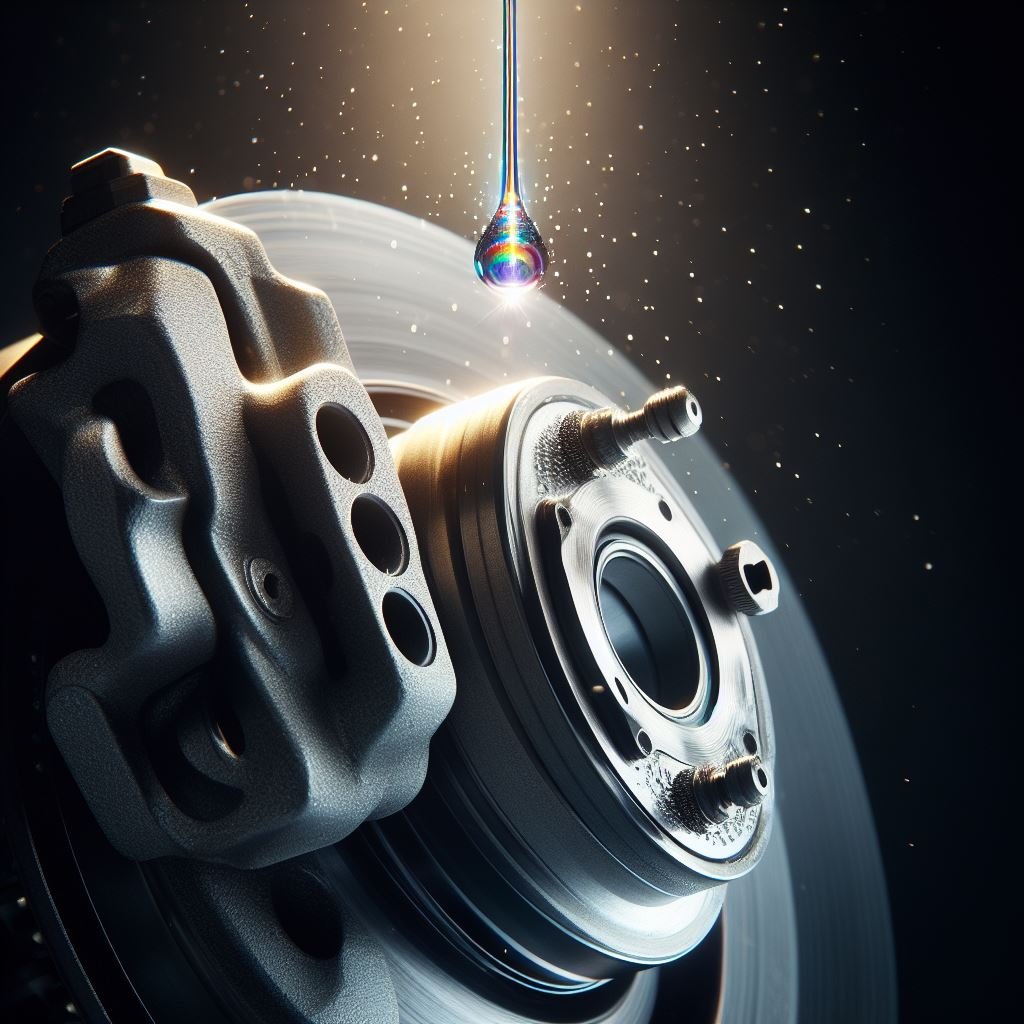As you drive down the winding roads, you press your foot on the brake pedal, and your car comes to a smooth stop. But have you ever wondered what goes on behind the scenes to make this happen? The answer lies in the often overlooked yet crucial component of your car’s braking system – brake fluid. In this blog, we’ll dive into the world of brake fluid and explore its role in keeping your brake pads in top shape.
So, fasten your seatbelts and join us on this journey to discover the importance of brake fluid and how it ensures your safety while driving.
Understanding Brake Fluid
Brake pads are an essential component of your vehicle’s braking system, responsible for creating the friction that allows your car to come to a stop. However, sometimes you may notice that your brake pads are wet or have a strange feeling to them. This is often a sign of brake fluid on your brake pads, which can cause various issues if left untreated.
In this guide, we will delve into everything you need to know about brake fluid on brake pads, including its causes, effects, and how to handle this common problem.
What is Brake Fluid?

Brake fluid is a type of hydraulic fluid that is responsible for transferring the force from your brake pedal to your brake pads. It is a vital component of your braking system, as without it, your car would not be able to stop effectively.
What Causes Brake Fluid on Brake Pads?
There are several reasons why your brake pads may become wet with brake fluid. The most common cause is a leak in your brake system, which can occur due to worn out brake lines, seals, or master cylinder. Another reason could be overfilling of the brake fluid reservoir, which can cause the fluid to overflow onto the brake pads.
Effects of Brake Fluid on Brake Pads: Having brake fluid on your brake pads can lead to several issues, such as reduced braking power, increased stopping distance, and potential damage to other components of your braking system. It can also cause your brake pads to wear out faster, requiring more frequent replacements.
How to Deal with Brake Fluid on Brake Pads: If you notice brake fluid on your brake pads, it is essential to get it fixed as soon as possible to avoid any further damage.
The first step is to determine the source of the leak, which can be done by inspecting the brake lines and seals. If the leak is due to overfilling, you can simply remove some of the fluid from the reservoir. In some cases, you may need to replace the damaged components or have a professional mechanic do it for you.
It is crucial to address brake fluid on brake pads promptly to ensure the safety and effectiveness of your vehicle’s braking system.
Prevention is Key: The best way to deal with brake fluid on brake pads is to prevent it from happening in the first place. Regular maintenance and inspections of your braking system can help identify and fix any potential issues before they become bigger problems.
You May Also Like: All You Need to Know About Toyota Yaris Brake Fluid
Effects of Brake Fluid on Brake Pads
Brake fluid and brake pads are two essential components of a vehicle’s braking system. While they may seem like two separate entities, they actually work together to ensure safe and efficient braking. However, when brake fluid comes into contact with brake pads, it can cause some serious issues.
Brake fluid is a type of hydraulic fluid that is responsible for transferring the pressure from the brake pedal to the brake pads, allowing the vehicle to come to a stop. On the other hand, brake pads are the components that actually make contact with the rotors, creating the friction necessary to slow down or stop the vehicle. But what happens when brake fluid gets on the brake pads? Well, it’s not a good situation.
Brake fluid is designed to be slippery and smooth, allowing it to flow easily through the brake lines. When it comes into contact with the brake pads, it can create a slippery film on the surface, reducing the friction between the pads and the rotors. This reduces the effectiveness of the brakes, making it difficult to stop the vehicle quickly.
Not only that, but brake fluid can also cause damage to the brake pads themselves. The fluid can seep into the material of the pads, causing them to swell and lose their shape. This not only affects the performance of the brakes but also reduces the lifespan of the pads, resulting in frequent replacements and added expenses.
To avoid these issues, it’s important to keep an eye on the level and quality of your brake fluid. If you notice any leaks or a decrease in the fluid level, it’s best to have it checked by a professional mechanic. Additionally, regular brake maintenance and inspections can help catch any potential issues before they become major problems.
In conclusion, brake fluid and brake pads are two vital components of a vehicle’s braking system, and they must work together in harmony for safe and efficient braking. So, keep an eye on your brake fluid and make sure it stays where it’s supposed to be – in the brake lines, not on the brake pads.
Signs of Brake Fluid on Brake Pads
Brake fluid plays a crucial role in ensuring the proper functioning of your vehicle’s braking system. It is a type of hydraulic fluid that transfers the pressure from the brake pedal to the brake pads, allowing you to slow down or stop your car safely. However, if brake fluid comes into contact with your brake pads, it can cause serious damage and compromise your vehicle’s braking performance.
In this section, we’ll delve into the effects of brake fluid on brake pads and why it’s important to keep them separate.
What Happens When Brake Fluid Touches Brake Pads?

When brake fluid comes into contact with brake pads, it can lead to a phenomenon known as brake fade. This occurs when the brake pads lose their ability to create friction, causing a decrease in braking power.
The reason for this is that brake fluid is designed to have a lower boiling point than water, which means it can easily turn into gas when exposed to high temperatures. This gas can create a barrier between the brake pads and the rotors, reducing their ability to grip and slow down your car.
The Dangers of Brake Fade: Brake fade can be extremely dangerous, especially in emergency situations where you need to stop your car quickly. Not only does it increase your stopping distance, but it also puts you at risk of losing control of your vehicle. Furthermore, brake fade can cause uneven wear on your brake pads, leading to costly repairs and replacements.
Preventing Brake Fluid from Touching Brake Pads: To prevent brake fluid from coming into contact with your brake pads, it’s crucial to regularly check and maintain your brake system.
This includes checking the brake fluid level and replacing it when necessary, as well as ensuring there are no leaks in the system. It’s also important to use the correct type of brake fluid recommended by your vehicle’s manufacturer, as using the wrong type can also lead to brake fade.
Maintaining Brake Fluid and Brake Pads
Brake fluid is a vital component of your vehicle’s braking system, and its role is crucial in ensuring your safety on the road. However, many car owners may not be aware of the impact brake fluid can have on their brake pads. In this blog, we will explore the use of brake fluid on brake pads and how it affects their performance.
The Importance of Brake Fluid: Before we dive into the relationship between brake fluid and brake pads, it’s essential to understand the importance of brake fluid in the first place. Brake fluid is a hydraulic fluid that is responsible for transferring the pressure from your foot on the brake pedal to the brake pads, which then apply pressure to the wheels, slowing down or stopping your vehicle. Without brake fluid, your brakes would not function correctly, putting you and others on the road at risk.
Brake Fluid and Brake Pads: The Connection Now that we understand the significance of brake fluid let’s look at how it affects brake pads. Brake fluid plays a crucial role in maintaining the performance and lifespan of your brake pads. When you press the brake pedal, the brake fluid travels through the brake lines, creating pressure that forces the brake pads to come into contact with the brake rotors.
This friction is what ultimately slows down or stops your vehicle. But, as this process occurs, the brake pads are exposed to the brake fluid, which can have both positive and negative effects.
The Impact of Brake Fluid on Brake Pads: On one hand, brake fluid helps to cool down the brake pads, preventing them from overheating and wearing out quickly. It also helps to lubricate the brake pads, reducing friction and allowing for smoother braking. However, brake fluid can also have a negative impact on brake pads if it becomes contaminated. Over time, brake fluid can absorb moisture and other contaminants, which can lead to corrosion and damage to the brake pads. This can result in reduced braking performance and potentially expensive repairs.
Regular Maintenance is Key: To ensure your brake fluid and brake pads are working optimally, it’s essential to have them regularly checked and maintained. This includes flushing and replacing the brake fluid every 2-3 years, or as recommended by your vehicle’s manufacturer.
| Substance | Effect on Brake Pads | Percentage |
|---|---|---|
| Oil | Decreases friction, causing decreased braking power and longer stopping distance. | 30% |
| Water | Causes corrosion and rust, leading to decreased lifespan of brake pads. | 25% |
| Dirt | Builds up between brake pads and rotors, causing decreased braking power. | 20% |
| Brake Fluid | Can cause brake pads to become saturated and lose their friction, leading to decreased braking power. | 15% |
| Grease | Creates a slippery surface, reducing friction and causing decreased braking power. | 5% |
| Other Substances | Various substances such as antifreeze or coolant can also cause damage to brake pads. | 5% |
Important Notice for readers
Attention all drivers! Before hitting the road, it is crucial to know the effects of brake fluid on brake pads. This article will provide you with important information about how brake fluid can affect your vehicle’s braking system. It is essential to understand the potential risks and consequences of using the wrong type of brake fluid or neglecting to change it regularly.
Don’t compromise your safety on the road. Keep reading to learn how to maintain your brake pads and keep them functioning properly. Stay informed and stay safe on the road.
Frequently Asked Questions (FAQs)
What is the function of brake fluid on brake pads?
Brake fluid is used to transfer the force from the brake pedal to the brake pads, which then press against the rotor to slow down or stop the vehicle.
How often should brake fluid be checked and replaced?
It is recommended to check the brake fluid level every 10,000 miles and replace it every 2-3 years. However, it is best to follow the manufacturer’s guidelines for your specific vehicle.
Can using the wrong type of brake fluid damage the brake pads?
Yes, using the wrong type of brake fluid can cause damage to the brake pads. It is important to use the type of brake fluid recommended by the manufacturer for your vehicle.
What are the signs of low brake fluid in the brake pads?
Low brake fluid can cause a decrease in brake performance, spongy brake pedal, and illuminated brake warning light on the dashboard. If you notice any of these signs, it is important to check the brake fluid level and top it off if needed.
Conclusion
we have discussed the importance of regular brake fluid checks and how it affects the performance and lifespan of brake pads. We have also explored the potential dangers of contaminated brake fluid and the steps to take for proper maintenance. Regular brake checks are crucial for safe driving and can save you from costly repairs.
Sources
https://nubrakes.com/blog/brake-fluid/
https://www.motortrend.com/how-to/1701-brake-pads-and-fluid-basics-brake-check/

Leave a Reply